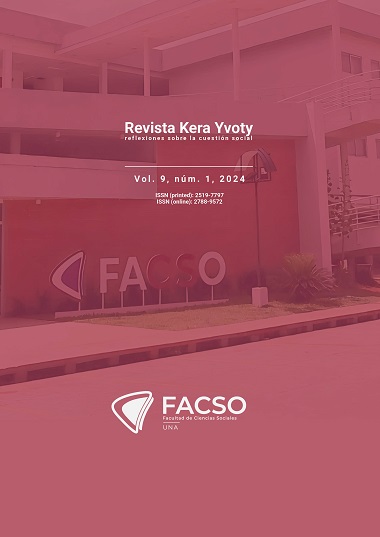Abstract
This article proposes an approach to the notion of experience, based on the analysis centered on the categories constructed by Edward Palmer Thompson. The reflections are based on some initial questions about the meaning assumed by the notion of social experience, and how does the author think of the individual and collective dimensions in the analysis he proposes on "experience"? In order to answer these questions, the author's approach is contextualized in the theoretical production in the field of contemporary social sciences and, specifically, within the tradition of Marxist thought. This work of theoretical-methodological reflection is organized in three sections. The first one situates the problem of the split between action and structure. The perspectives, elaborations and theoretical attempts to avoid dichotomous analyses that mutilate and dissociate the dimensions that give complexity. In the second one, the analytical category of experience is specially approached. The main reflections of E. P. Thompson on the concept and his proposals on the necessary articulation of different dimensions in the construction of social, political, economic, ideological and cultural reality are recovered. Finally, in a last item, final reflections and new questions are presented.
References
Bourdieu, P. (1997). Razones prácticas. Sobre la teoría de la acción. Anagrama.
Bourdieu, P. (2000). Cosas dichas. Gedisa Editorial.
Cardoso de Oliveira, R. (1988). Sobre o pensamento antropologico. Tempo Brasileiro.
Das, V. (2017). Cómo el cuerpo habla. Etnografías Contemporáneas, (5). https://revistasacademicas.unsam.edu.ar/index.php/etnocontemp/article/view/451
Diez, C. (2011). Na dança da solidao…Reflexiones sobre “El baile de los solteros. La crisis de la sociedad campesina en el Bearne” de Pierre Bourdieu. Trabajo y Sociedad, (17). http://www.scielo.org.ar/scielo.php?script=sci_arttext&pid=S1514-68712011000200006&lng=es&tlng=es.
Elias, N. (1990). La sociedad de los individuos. Península.
Gómez Garrido M. (2013). La mirada antropológica de E.P. Thompson. Sociología Histórica, (3), 285-309. https://revistas.um.es/sh/article/view/189301
Graña, F. (1999). Un acercamiento a los paradigmas en sociología. Revista de Ciencias Sociales, (15).
Grimberg, M. (Ed.). (2009). Experiencias y narrativas de padecimientos cotidianos. Miradas antropológicas sobre la salud, la enfermedad y el dolor crónico. Antropofagia.
Hobsbawm, E., Hill, C., Anderson, P., Thompson, E. P., Scott, J. W. (1994). Agendas para una historia radical. Revista El Cielo por Asalto (6).
Marx, K. (1980). Tesis Sobre Feuerbach. Progreso.
Marx, K. (2003). El 18 Brumario de Luis Bonaparte. Fundación Federico Engels.
Ritzer, G. (1998). Teoría sociológica contemporánea. McGraw-Hill.
Sorgentini, H. (2000). La recuperación de la experiencia histórica: Un Comentario Sobre E.P. Thompson. Sociohistorica-Cuadernos Del Cish. (7), 53-80. https://www.memoria.fahce.unlp.edu.ar/art_revistas/pr.2820/pr.2820.pdf
Soul, J. (2013). E. P. Thompson en la antropología social latinoamericana. Convergencias, divergencias y desplazamientos conceptuales. Revista Rey Desnudo, (3), 334 -360.
Thompson, E. P. (1982). Tradición revuelta y consciencia de clase. Estudio sobre la crisis de la sociedad preindustrial. Editorial Crítica.
Thompson, E. P. (1985). Costumbres en Común. Editorial Crítica.
Thompson, E. P. (1989). La formación de la clase obrera en Inglaterra. Editorial Crítica.
Williams, R. (1980). Marxismo y Literatura. Península.
Williams, R. (2008). Palabras clave: Un vocabulario de la cultura y la sociedad. Ediciones Nueva Visión.

This work is licensed under a Creative Commons Attribution 4.0 International License.
Copyright (c) 2024 María Carolina Diez




